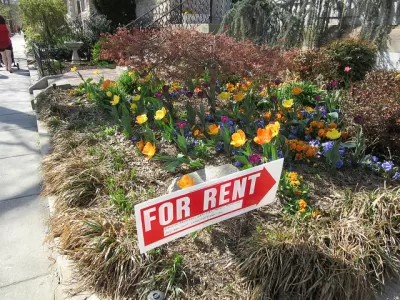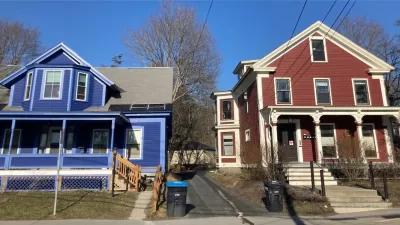State legislation would preempt local governments that block the construction of accessory dwelling units, known locally as coach houses, to increase the supply of affordable housing options in the state.

"A proposal before the Illinois General Assembly would overturn half a century of resistance to granny flats, coach houses and other 'accessory dwelling units,' paving the way for these lower-cost housing types to flourish in towns all over Illinois," reports Dennis Rodkin.
Rep. Robyn Gabel (D-Evanston) proposed HB4869 to preempt local governments that prohibit construction or use of accessory dwelling units—referred to in local parlance as coach houses.
Proponents of the legislation argue that legalizing accessory dwelling units responds to a need for more low-cost, smaller size housing units. A December report published by Zillow, "estimated that loosening the restrictions on ADUs would make room for a quarter-million new housing units in the Chicago area," according to Rodkin.
While HB4869 has support from state legislators representing parts of Chicago, the city of Chicago has been unable to complete similar legislation in recent years. A recent attempt at a citywide ADU ordinance stalled as opponents expressed concern that ADUs would only be used for short-term rentals.
FULL STORY: This bill would make coach houses welcome in Illinois

Trump Administration Could Effectively End Housing Voucher Program
Federal officials are eyeing major cuts to the Section 8 program that helps millions of low-income households pay rent.

Planetizen Federal Action Tracker
A weekly monitor of how Trump’s orders and actions are impacting planners and planning in America.

Ken Jennings Launches Transit Web Series
The Jeopardy champ wants you to ride public transit.

Philadelphia Is Expanding its Network of Roundabouts
Roundabouts are widely shown to decrease traffic speed, reduce congestion, and improve efficiency.

Why Bike Lanes Are Good: An Explainer for the US Transportation Secretary
Sean Duffy says there’s no evidence that bike lanes have benefits. Streetsblog — and federal agencies’ own data — beg to differ.

California Invests Additional $5M in Electric School Buses
The state wants to electrify all of its school bus fleets by 2035.
Urban Design for Planners 1: Software Tools
This six-course series explores essential urban design concepts using open source software and equips planners with the tools they need to participate fully in the urban design process.
Planning for Universal Design
Learn the tools for implementing Universal Design in planning regulations.
Ada County Highway District
Clanton & Associates, Inc.
Jessamine County Fiscal Court
Institute for Housing and Urban Development Studies (IHS)
City of Grandview
Harvard GSD Executive Education
Toledo-Lucas County Plan Commissions
Salt Lake City
NYU Wagner Graduate School of Public Service





























